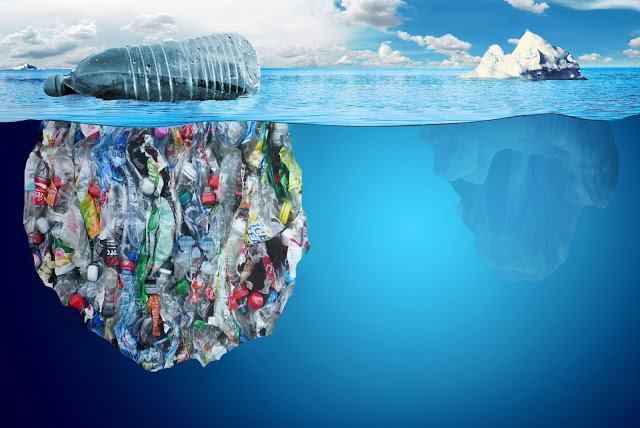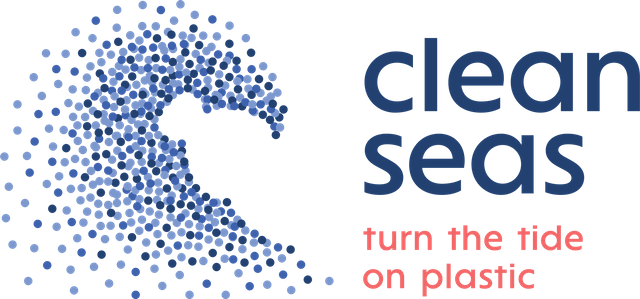Plastics: two terrible anniversaries and an Australian dilemma
28 February 2018
Plastic, the magic material that gave us paper-saving throwaway cups, instant rain macs and handy shopping bags, turns out to be a 21st-century monster. And small is particularly deadly, when the plastics become microbeads.

Plastic grocery bags first appeared in U.S. supermarkets in 1977, 20 years after the first plastic sandwich bags were introduced in the United States.
Today the average number of plastic pieces in each square mile of ocean is put at some 46,000 according to the Australian Department of the Environment and Heritage. Worse, we now know it might take 500 years for a plastic bag to degrade in a landfill. and it breaks up into microbeads that damage wildlife.
My great-niece Madeleine Woodruff, a graduate student in animal health and disease who is now taking an Honours Degree at Melbourne University's Animal Welfare Science Centre, has been tracking progress in Australia. Her home state is due to report next month on its consultation with consumers about how to implement a ban on single-use bags. Here is what she reports.
More plastic than fish?
"There will be more plastic in the world's oceans than fish by 2050 unless people stop using single-use plastic items such as plastic bags," the UN warned in 2017.
The UN experts proposed international targets for marine plastic reduction as a part of its CleanSeas campaign.
The U.S, China and India rejected the idea of fixed dates. They compromised with a pledge towards the "long-term elimination" of plastic entering the seas.
Half the world onboard
But in all, nearly 40 countries, accounting for more than half the world's coastline, have so joined the campaign.
On 11 February 2018 British media announced that "The Queen has declared war on plastic, banning straws and bottles from the Royal estates.
We all surely know the facts by now even if we can't recall the exact details.
- Under 1% of plastic bags are recycled, according to the Worldwatch Institute.
- 60-90% of marine litter contains plastic.
- Machine-washing a single synthetic garment releases more than 1900 microplastic fibres.
- At least 100,000 marine animals are killed each year by plastic bags, and many more by ingesting microbeads.

But UN Environment's own Petter Malvik admits courageously: "I used to not care about the problem of marine plastic pollution. In fact, prior to joining UN Environment about 14 months ago, I was blissfully ignorant of the issue. Sure, I knew that so-called single use-plastic was bad and dutifully tried to bring my tote bag when I went grocery shopping, but the question of where our discarded plastic bags, straws and plastic soda bottles actually ended up was one which I had never really given much thought."
Now he knows that about 90% of sea birds have ingested plastic, and almost 670 different marine species have already ingested or have been entangled by plastic.

Pointing out that 25% of plastics are produced for packaging, vegan campaigner Miranda Larbi told Londoners in a newspaper column on Valentine's Day: "The best thing to give up this Lent is plastic, not chocolate."
Ending a toxic relationship
UN Environment released a Valentine's Day promotional video entitled "Are you in a toxic relationship?" about a young woman who "breaks up with single-use plastics". It attracted three million views in the next days and the Clean Seas webpage clocked 10,000 new signups in a few hours.
Late to the party
In the Southern Hemisphere, in October 2017 the State of Victoria announced its intent to ban single-use plastic bags but is almost the last to do so.
The eastern coastal state of New South Wales, the most populated in the Commonwealth, is still dragging its feet.
Although there is no set date for implementation, the Victoria government is engaging the state’s public through an online survey. The results are due in March 2018.
Confusion, wrong labels
How effective will this effort be? It relies on participants not only to recognise the detrimental impacts of plastic bags but also to understand the alternatives, around which there is some confusion.
One of Australia's leading environmental news organisations, PlanetArk, warns that labels given to alternative bags are often "incorrect and confusing". The terminology used for substitute bags is often misleading.
Biodegradable, compostable, degradable
The Victorian State Government defines some "environmentally friendly" plastic in its discussion paper available on the website.
• "Biodegradable bags" are made from natural material which break down into organic material and water over time. But there is no national standard as to how long this should take.
• "Compostable bags" are a biodegradable variety that can be composted, but only commercially.
• Finally, "degradable bags" are plastic that can be deteriorated using biological or chemical processes.
These alternatives may appear better for the environment, but without knowledge of their correct disposal they could be equally damaging.
South Australia a pioneer
Victoria announced its proposed ban eight years after neighbouring South Australia became the first state to implement a ban on lightweight plastic bags in 2009. The two Territories and Tasmania followed in 2011 and 2013 respectively
Three of the four remaining states have been slower to act, but made announcements almost simultaneously. Queensland and Western Australia announced their bans in September set to start in July 2018. However, the New South Wales government — home to Sydney and Bondi Beach — has no plans.
Supermarket giants join the campaign
Strengthening the movement, two Australian supermarket giants announced a voluntary phase out of lightweight plastic bags by the end of 2018.
NSW's Premier said there was no need for a ban because the supermarkets that provide 80% of plastic bags are taking action themselves.
In Victoria lighter-weight bags used for fruit and vegetable packaging will still be available, and the ban won't include heavier plastic bags favoured by many clothing retailers.
Alternatives
We have alternatives: the recyclable ‘green bag’ is a reusable bag commonly sold at Australian supermarkets. Cardboard boxes and paper bags can also be used, and may cost nothing. The Victoria State government website has a comparison sheet on the various shopping bags.
However, some people are worried that banning the use of lightweight plastic bags will just lead to the increase in use of the heavy weight plastic, which are an equal threat to the environment.
Bin liners
Similarly, there may be an increased demand for bin liners. This has been the case in Canberra since bags were banned. Many households had used lightweight plastic bags to line their bins.
On the positive side, Canberra has noted an increased awareness of sustainable methods of waste disposal due to the ban.
My choice? A gradual ban
In the current situation, perhaps it is best to introduce a gradual ban. It will be interesting to learn next month what Victoria's consumers think should be done.
I've noted some facts and figures on plastic bags and provided a list of resources at the nusefile website